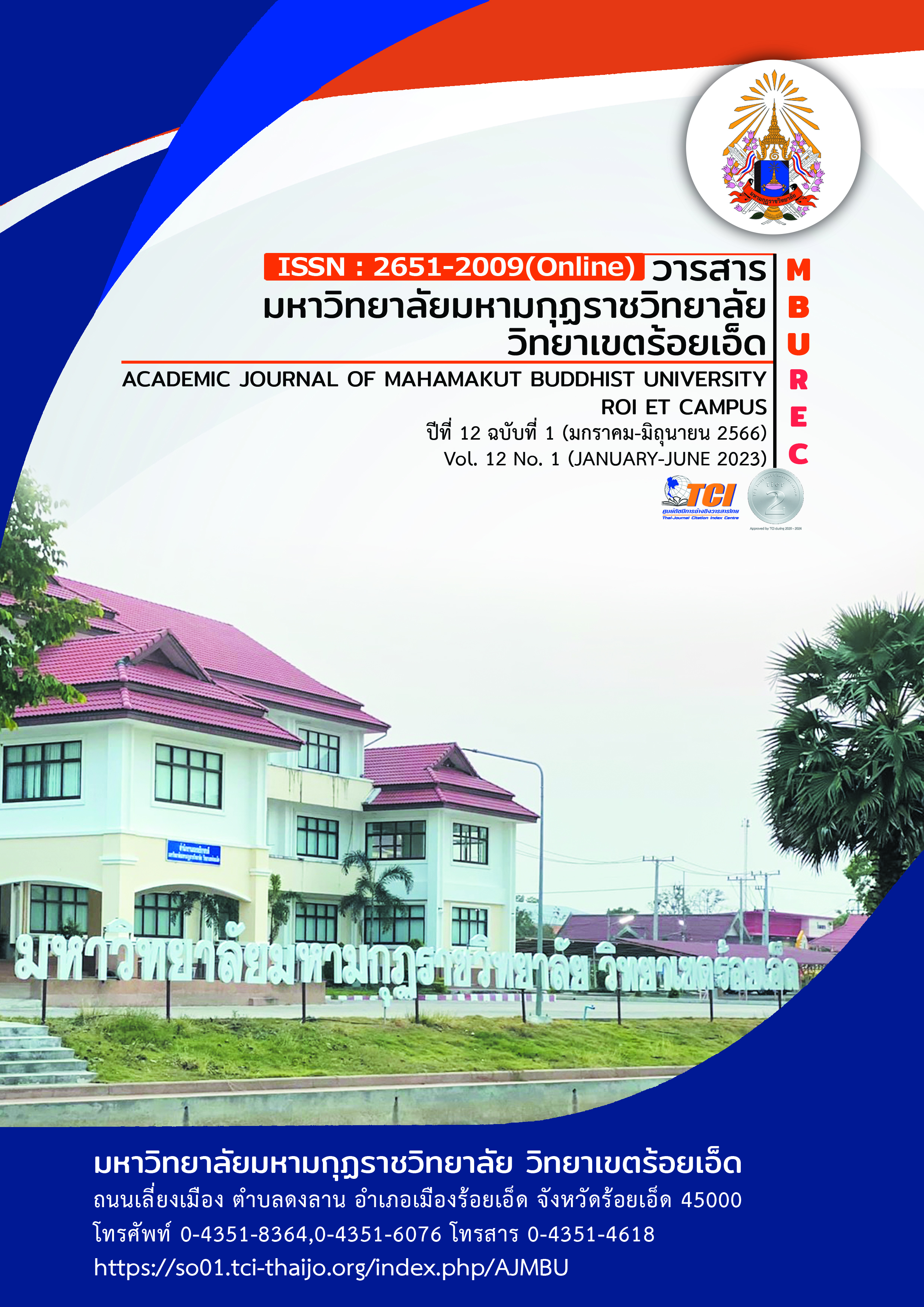CAUSAL FACTORS INFLUENCING PURCHASE INTENTION CLOTHES ON ZARA APPLICATION OF CONSUMERS IN BANGKOK
Main Article Content
Abstract
The objectives of this article were to 1) develop and validate the consistency of a causal relationship model of the purchase intention clothes on Zara Application of consumers in Bangkok. 2) To study causal factors affecting purchase intention clothes on Zara Application of consumers in Bangkok.The tools used in the research were online questionnaires. The sample group consisted of 400 consumers in Bangkok, who have purchase intention clothes on Zara Application. The statistics used in data analysis were frequency, percentage and the structural equation model.
The results of the research showed that 1. the causal relationship model of variables consisting of 4 components was 1) sensory stimuli 2) experience 3) brand equity 4) purchase Intention and model developed in accordance with empirical data. The statistics showed the Chi-square statistics goodness fit test (χ2) = 249.231, degrees of freedom (df) = 127, CMIN/df = 1.962, GFI = 0.94, AGFI = 0.90, SRMR = 0.03, RMSEA = 0.04. The final was predictive coefficient of 0.99, indicating that the variables in the model can explain the purchase intention clothes on Zara Application of consumers in Bangkok by 99 percent. 2. Causal factors were experience and brand equity influence on purchase intention. The results of this research are useful for marketing strategies to meet the needs of customers in the future.
Article Details

This work is licensed under a Creative Commons Attribution-NonCommercial-NoDerivatives 4.0 International License.
References
กริช แรงสูงเนิน. (2554). การวิเคราะห์ปัจจัยด้วย SPSS และ AMOS เพื่อการวิจัย. กรุงเทพมหานคร : ซีเอ็ดยูเคชั่น.
ทวีพร พนานิรามัย. (2558). ปัจจัยที่มีอิทธิพลเชิงบวกต่อความตั้งใจซื้อสินค้าซุปเปอร์มาร์เก็ตออนไลน์ A ของผู้บริโภคในเขตยานนาวา จังหวัดกรุงเทพมหานคร. การศึกษาค้นคว้าอิสระบริหารธุรกิจมหาบัณฑิต. มหาวิทยาลัยกรุงเทพ.
นงลักษณ์ วิรัชชัย. (2542). โมเดลลิสเรล: สถิติวิเคราะห์สำหรับการวิจัย. พิมพ์ครั้งที่ 3. กรุงเทพมหานคร : โรงพิมพ์แห่งจุฬาลงกรณ์มหาวิทยาลัย.
นภวรรณ คณานุรักษ์. (2561). คุณค่าตราสินค้าที่ส่งผลต่อความตั้งใจซื้อตราสินค้ารองเท้ากีฬาของผู้บริโภคในเขตกรุงเทพมหานคร. วารสารการจัดการสมัยใหม่. 16(1). 207-218.
นิเวศน์ ธรรมะ. (2562). ประสบการณ์การซื้อออนไลน์ที่ส่งผลต่อความตั้งใจซื้อสินค้าออนไลน์.วารสารรังสิตบัณฑิตศึกษาในกลุ่มธุรกิจและสังคมศาสตร์. 5(1). 62-71.
ฤดี หลิมไพโรจน์. (2556). การตลาดสินค้าแฟชั่น. พิมพ์ครั้งที่ 4. ปทุมธานี : มหาวิทยาลัยกรุงเทพ.
ลงทุนแมน. (2560). ZARA ร้านขายเสื้อผ้าอันดับ 1 ของโลก. สืบค้นเมื่อ 20 มีนาคม 2565. จาก http://longtunman.com/250
สรีพร โพธิ์งาม. (2559). ปัจจัยที่มีผลต่อความไว้วางใจตลาดกลางพาณิชย์อิเล็กทรอนิกส์ในประเทศไทย. กรุงเทพมหานคร : มหาวิทยาลัยศิลปากร.
สุมนมาศย์ ศรีเปลี่ยนจั่น และโรจนศักดิ์ โฉมวิไลลักษณ์. (2560). ประสบการณ์การซื้ออาหารออนไลน์ที่มีผลกระทบต่อความตั้งใจซื้ออาหารออนไลน์. กรุงเทพมหานคร : มหาวิทยาลัยหอการค้าไทย.
Hair, J.F., Black, W.C., Babin, B.J., & Anderson, R.E. (2010). Multivariate data analysis. 7th ed. New York : Pearson.
Hoelter, J. W. (1983). The Analysis of Covariance Structures: Goodness-of-Fit Indices. Sociological Methods and Research. 11(3). 325–344.
Kline, R.B. (2011). Principles and Practice of Structural Equation Modeling. 3rd ed. New York, NY : The Guildford Press.
Krungsri Plearn. (2021). ZARA แบรนด์แฟชั่นระดับโลก ที่ขายดิบขายดีด้วยพลังของข้อมูล. สืบค้นเมื่อ 20 มีนาคม 2565. จาก https://www.krungsri.com/th/plearn-plearn/ zara-data-driven-fashion.
Jani and Han (2014). Personality, satisfaction, image, ambience, and loyalty: Testing their relationships in the hotel industry. International Journal of Hospitality Management. 37(February 2014). 11–20.


